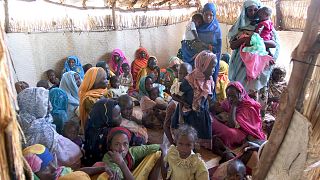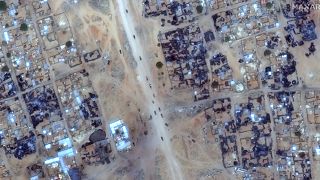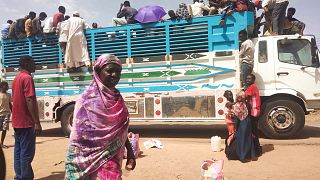Sudan
Sudan’s economy has been limping since the south of the country seceded in 2011, taking with it three-quarters of its oil output.
Bread shortages have hit the country, with wheat traders blaming a foreign currency crisis for shortages of the staple that have left people queuing for hours outside bakeries.
“The economic situation used to be good and the purchasing power people had was reasonable, but conditions are bad now, the goods are expensive, and so people are unable to buy them,” said Hussin Osman, a shop keeper
The situation was further worsened when the Sudanese pound was devalued, making it hard to import essential supplies such as wheat.
According to the State Statistical Agency, inflation rose to 68.93% in November from 68.44% in October. It has increased constantly despite government attempts to contain the hike in prices by strictly limiting cash withdrawals.
For his part, Khartoum resident, Marwa Mageed said “the living conditions in Sudan are deteriorating. We have queues everywhere, for fuel, and at ATMs. You can’t even withdraw your money from the bank. You can’t get your salary. Everything has become very expensive and we don’t know what is happening. It feels like there’s a ticking bomb and we don’t when it will explode.”
Sudan’s cabinet said on Tuesday (December 19) that it expects a big rise in exports and a reduced budget deficit next year.













01:16
Africa mourns Pope Francis, a voice for peace and justice
Go to video
South Sudan to send delegation to the U.S. in a effort to appease tensions
Go to video
South Sudan: top UN official in the country warns of risk of new civil war
02:00
Two years of war in Sudan: international conference aims to bring relief to suffering population
02:05
Human Rights Watch urges action over incendiary weapons use in South Sudan
Go to video
Sudan: World Food Programme warns of hunger crisis, asks for more funding